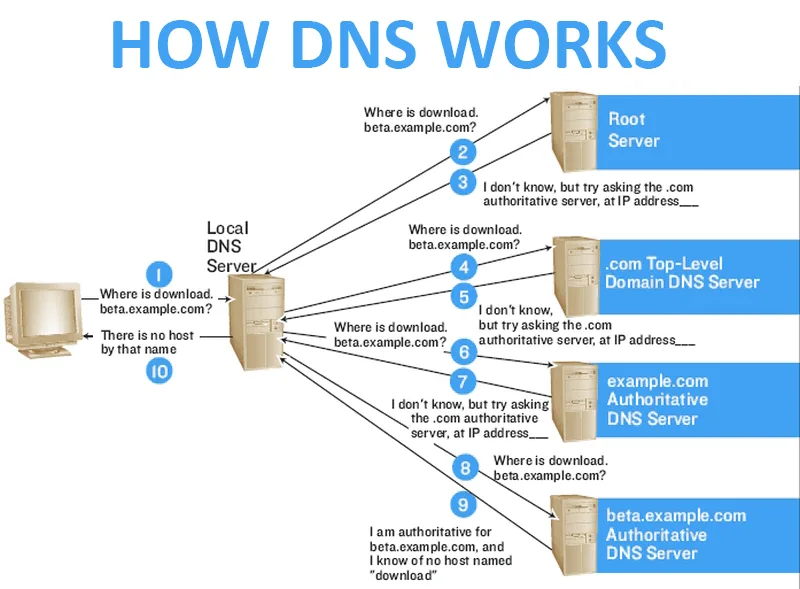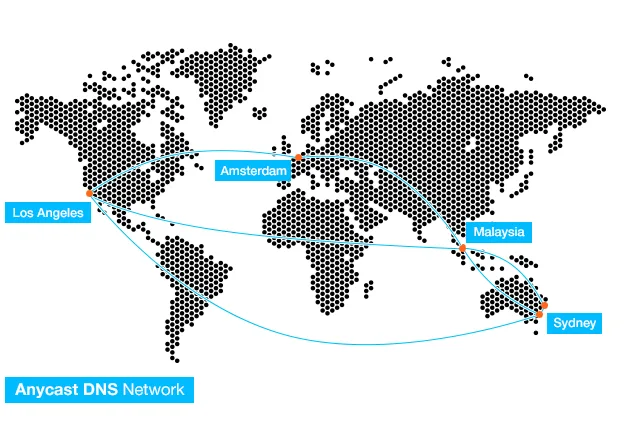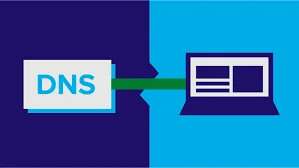Anycast DNS
Anycast DNS services are one of the fastest growing trends in the hosting industry. They offer the latest technology to network professionals who are looking to improve their websites’ performance and user experience. Anycast is a generic name for anycast address allocations on the Internet. They are managed by IP networks like Anycast DNS servers.
Anycast Dns servers work by maintaining two types of resources: normal, or class C IP addresses and normal, or reserved, IP addresses. Anycast DNS services to ensure continuity of service even during high traffic periods and helps businesses generate redundancy and scale for high query loads. Anycast DNS also allows businesses to generate and consume their own traffic. Anycast-DNS works by detecting and responding only to a request for information with a guaranteed delivery time.
Benefits
There are many benefits to using anycast dns servers. They offer guaranteed round-trip latency even for high-traffic web sites, and this latency is guaranteed regardless of geographic locations. This means that your website’s users will never experience dropped frames or connection errors, even when other websites in the same network are experiencing these problems. This means that your site’s pages and content will load at the same rate as other sites in your own geographical location, and visitors will not experience delays in browsing the Internet.
Hardware
Anycast-DNS service providers use special hardware to connect to Anycast-DNS servers. This special hardware can serve a single physical address or it can serve multiple geographical locations. A physical address is a compact way of representing a single IP address (a series of numbers). Geographically distributed data centres make up multiple logical IP addresses with each having its own port number and gateway. The Anycast-DNS system can route packets of data from one of these logical locations to any number of physical locations as needed by the customer.
The system of Anycast-DNS also allows multiple sites to use the same name server. Each site can register its name with the Anycast DNS server using anycast dns servers. The DNS server will then assign the IP address of the domain name to this registered name. Users will log on to their computer and visit one of the sites that they have registered with the Anycast DNS system. The user will receive the requested page immediately, and the system will ensure that the requested page is delivered by the DNS servers to the relevant IP address.
Anycast-DNS systems allow clients to create their own private Anycast-DNS networks. These systems represent separate branches of the same name server. Each branch can be connected to other branch offices in the form of forwarding routes. Forwarding routes allow data from multiple Anycast-DNS servers to be interchanged in real time.
Dynamic and static routes
Anycast-DNS services are used in conjunction with dynamic or static routes. A dynamic route can be defined to follow a set path through the Internet while a static route is used when no intermediate information needs to be followed. Dynamic Anycast-DNS services provide a fast route for Internet traffic. The advantage of using this technology is that the system can route packets of data from different geographical areas at the same time. In addition, it is useful for businesses that require fast delivery of mail. For instance, a company could route all the mail sent to a single IP address.
The system allows users to establish dynamic Anycast-DNS networks by connecting multiple nodes. Users may do so using dynamic Anycast-DNS servers or static Anycast DNS servers. Multiple servers can be connected to form a complex Anycast-DNS routing system. However, this process takes time as each IP address has to be assigned to a specific node.
What is DNS & How Does It Work
DNS converts a domain name into its corrosponding IP address.

At its most fundamental, DNS is simply a list of names which correspond to numbers. In this example, the numbers in this instance would be IP addresses, that computers utilise to communicate with each other over the internet. While there are different types of servers, or zones, which correspond to different numbers within the DNS, essentially they are all used to serve the same purpose: to identify and direct requests to a specific zone on a larger server which stores data about all the servers that are associated with that zone. This large server is called a root server, and it contains not only the DNS zone files but also has other programs like mail servers and FTP services, and so forth.
Zone Files
A zone file is basically a compact description of every name that is registered on the internet corporation’s web server and is used by every DNS client to connect to the root servers for that zone. All of the zones are stored on the same server, and each zone entry consists of a key, a value, and an optional list of name indicators. The DNS client then sends a request to this key / value combination, and the DNS server checks the corresponding values against a set of stored data about registered names which match the query. If there are matches, the DNS client receives an established connection to the right server, and the DNS server determines what additional information should be provided.
Registrars
Registrars are also responsible for storing DNS zone records, or zone files. Zone files contain the IP addresses of every name registered on the internet, as well as details like who owns the IP address, and where the IP address is located. DNS clients use zone files to request information about zones, and the DNS servers maintain these records in their databases so that every request to a DNS server can be returned with information about the relevant zone. Every DNS client that connects to the internet must use a DNS server to access zone files to discover names and addresses associated with a particular Top Level Domain, or TLD, for a particular internet domain.
A number of free and commercialised DNS packages are available and can be customised by an administrator for each organisation’s needs. In addition to having DNS managed by an independent entity, users can often have DNS administrators provide email alerts when certain conditions are met and can define rules for which address requests should be denied. Different organisations may also require different levels of DNS authority. It is possible, with certain technologies, to establish DNS entities that work just like private phone books that are used by individual users.
Anycast network by “Domain Registration DNS”








